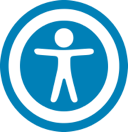College: a time of self-discovery, late-night ramen feasts, and questionable fashion choices. It's also, let's be honest, a period of immense pressure. Choosing a major, navigating complex financial aid forms, and figuring out your "adulting" skills – it's enough to make even the most chill student sweat. But amidst the whirlwind, there's one question that might be silently lurking in the back of your mind: "When do I actually start planning my career?"
Related Article: College Preparation Checklist
Relax, freshman warrior! You haven't missed the boat (yet). While it might seem like everyone else has their life perfectly mapped out, the truth is, career planning is a journey, not a destination. You wouldn't expect to run a marathon without any training, right? The same applies to your future career. The good news? College is your training ground, and starting early gives you a head start.
Why the Early Bird Gets the Dream Job
Think of career planning as building a skyscraper. You wouldn't start with the penthouse, would you? You lay the foundation first, then brick by brick, you build upwards. Starting early in college allows you to:
- Explore: Dive into different fields, sample courses, and discover your passions. Volunteering, internships, and even shadowing professionals can open your eyes to possibilities you never knew existed. Check out Idealist for volunteer opportunities and Handshake for internships.
- Develop Skills: Every experience, from writing essays to working on group projects, hones valuable skills like communication, critical thinking, and teamwork. These are sought-after by employers across industries. Resources like Coursera and edX offer free online courses to help you build your skillset.
- Network: Build relationships with professors, advisors, and professionals. Their guidance and connections can be invaluable in navigating your career path. Attend career fairs and workshops hosted by your college's career center, or connect with professionals on platforms like LinkedIn.
- Gain Confidence: Trying new things, facing challenges, and discovering your strengths boosts your confidence, a key asset in any job interview. Join clubs and organizations on campus that align with your interests, or participate in leadership programs offered by your college.
- Stay Ahead of the Curve: The job market is dynamic. By starting early, you can stay informed about trends and adapt your skills accordingly. Follow industry publications and subscribe to career newsletters to stay updated.
But, I'm Still Undecided!
Don't worry, not knowing your exact dream job is perfectly normal. In fact, many students change their majors or career aspirations throughout college. The key is to be proactive and explore your options. Here are some ways to get started:
- Take career assessments: These online tools can help you identify your strengths, interests, and values, leading you towards potential career paths. Check out MAPP or The Strong Interest Inventory.
- Talk to your advisor: They're there to guide you, not judge you. Discuss your interests and explore different major options.
- Attend career fairs and workshops: Network with professionals, learn about different industries, and get valuable insights.
- Volunteer and intern: Gain practical experience in fields that interest you. This can help you confirm your passion or discover new ones. Utilize resources like Idealist and Handshake to find opportunities.
- Talk to friends, family, and mentors: Get their perspectives and advice based on their experiences.
Remember, career planning is not about locking yourself into one path. It's about building a foundation of skills and experiences that will make you adaptable and valuable in any field.
College is not just about cramming for exams and surviving on ramen. It's your time to explore, experiment, and discover who you are and what you want to be. Embrace the journey, start planning early, and trust us, when graduation day arrives, you won't be scrambling for answers. You'll be ready to conquer the world, one career step at a time.
Bonus Tip: Don't be afraid to make mistakes! Trying new things and facing challenges are essential parts of the learning process. Embrace them, reflect on them, and use them as stepping stones to your future success.
Remember, you've got this! Now go out there, explore, and build your career skyscraper, brick by exciting brick.
What do fish use as currency to purchase anything?
Sand Dollars! Sign up to receive important information on banking, financial tips, and jokes like this directly to your inbox










